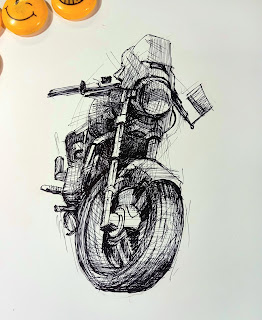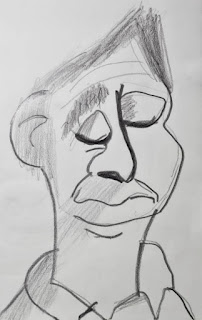A saga dos Martins The Martins Saga
A saga dos Martins
The Martins Saga
Minha vó Olindina era uma sertaneja forte. Casada com João Martins, resistiu por muitos anos à seca severa do Nordeste.
Mas no início da década de 1930, a caatinga venceu a família.
A fome, as doenças e a escassez bateram forte à porta.
“Vamos para o Sul.” — disse meu avô.
Venderam o pequeno sítio em Lajes, no Rio Grande do Norte, e partiram em busca de um novo começo.
A jornada seria longa e difícil.
Durante dez dias, meus avós, sete filhos pequenos e alguns retirantes chacoalharam na carroceria de um velho caminhão “pau de arara”.
Dormiram ao relento e comeram feijão com farinha na companhia de cobras, calangos e escorpiões.
No último trecho da viagem, o caminhão quebrou.
Meu avô e o motorista seguiram a pé até a cidade mais próxima para buscar ajuda.
Durante dois dias, minha avó ficou sozinha, cuidando das crianças e dos idosos.
As dificuldades que enfrentaram fortaleceram meus avós e os prepararam para a nova vida que os esperava.
Quando o motor voltou a roncar, seguiram viagem.
Chegaram exaustos, mas vivos, ao interior de São Paulo — à pequena e promissora cidade de Bauru.
Minha mãe, com catorze anos, era a mais velha e cuidava dos irmãos menores.
Logo conheceria o meu pai.
Mas essa… é uma outra história.
The Martins Saga
My grandmother Olindina was a strong woman from the Brazilian backlands.
Married to João Martins, she endured many years of the harsh droughts of the Northeast.
But in the early 1930s, the *caatinga* finally defeated the family.
Hunger, disease, and scarcity struck hard.
“We’re going South,” said my grandfather.
They sold their small farm in Lajes, Rio Grande do Norte, and set out in search of a new beginning.
The journey would be long and difficult.
For ten days, my grandparents, seven young children, and a few other migrants rattled along in the back of an old truck — the *pau de arara*.
They slept in the open and ate beans with flour, sharing the road with snakes, lizards, and scorpions.
On the final stretch, the truck broke down.
My grandfather and the driver walked to the nearest town to find help.
For two long days, my grandmother stayed behind, caring for the children and the elders alone.
The hardships they faced made them stronger and prepared them for the new life ahead.
When the engine finally roared again, they continued their journey.
They arrived exhausted but alive, in the countryside of São Paulo — in the small and promising town of Bauru.
My mother, at fourteen, was the eldest and took care of her younger siblings.
Soon she would meet my father.
But that… is another story.









Comentários
Postar um comentário